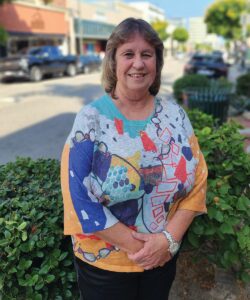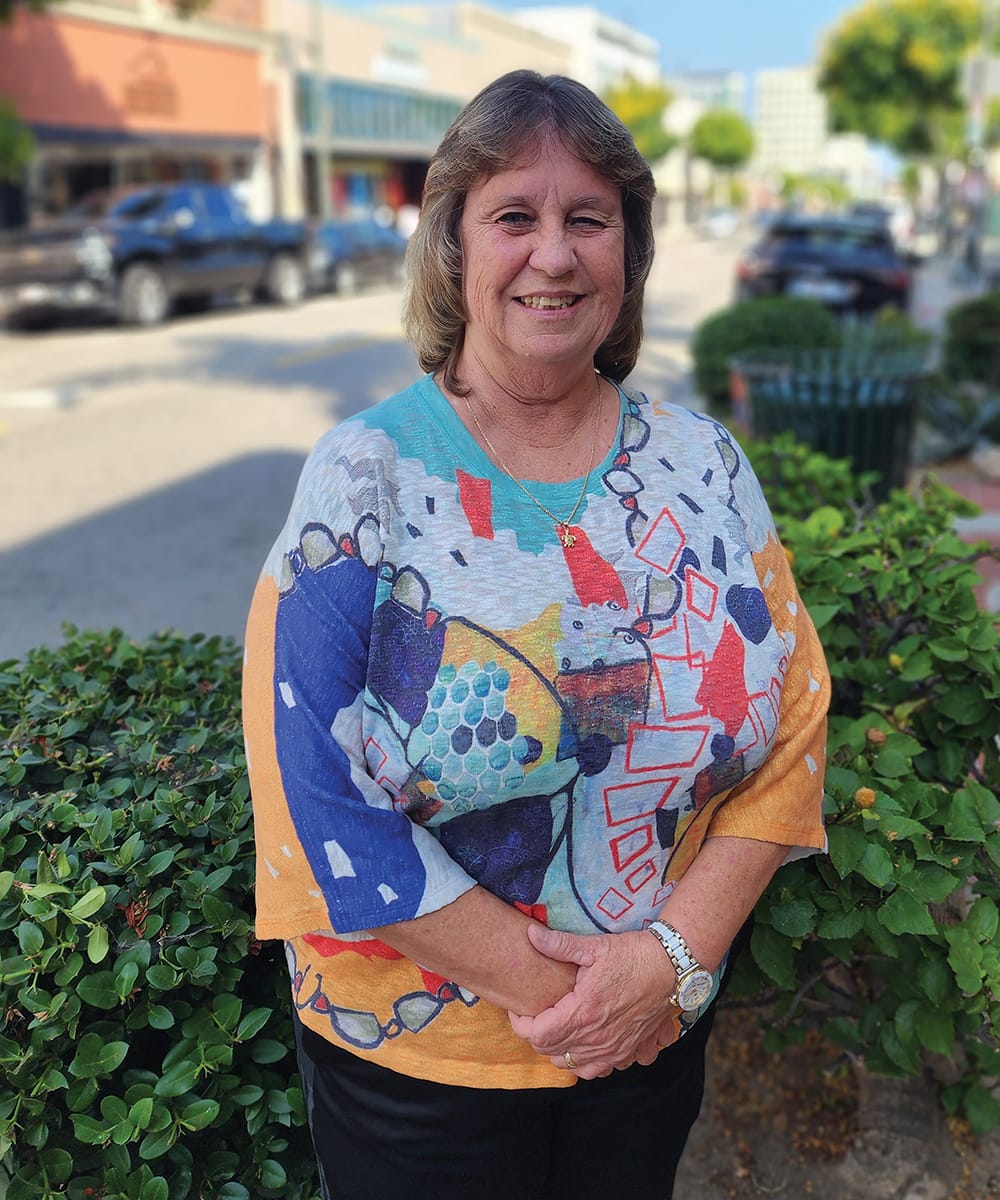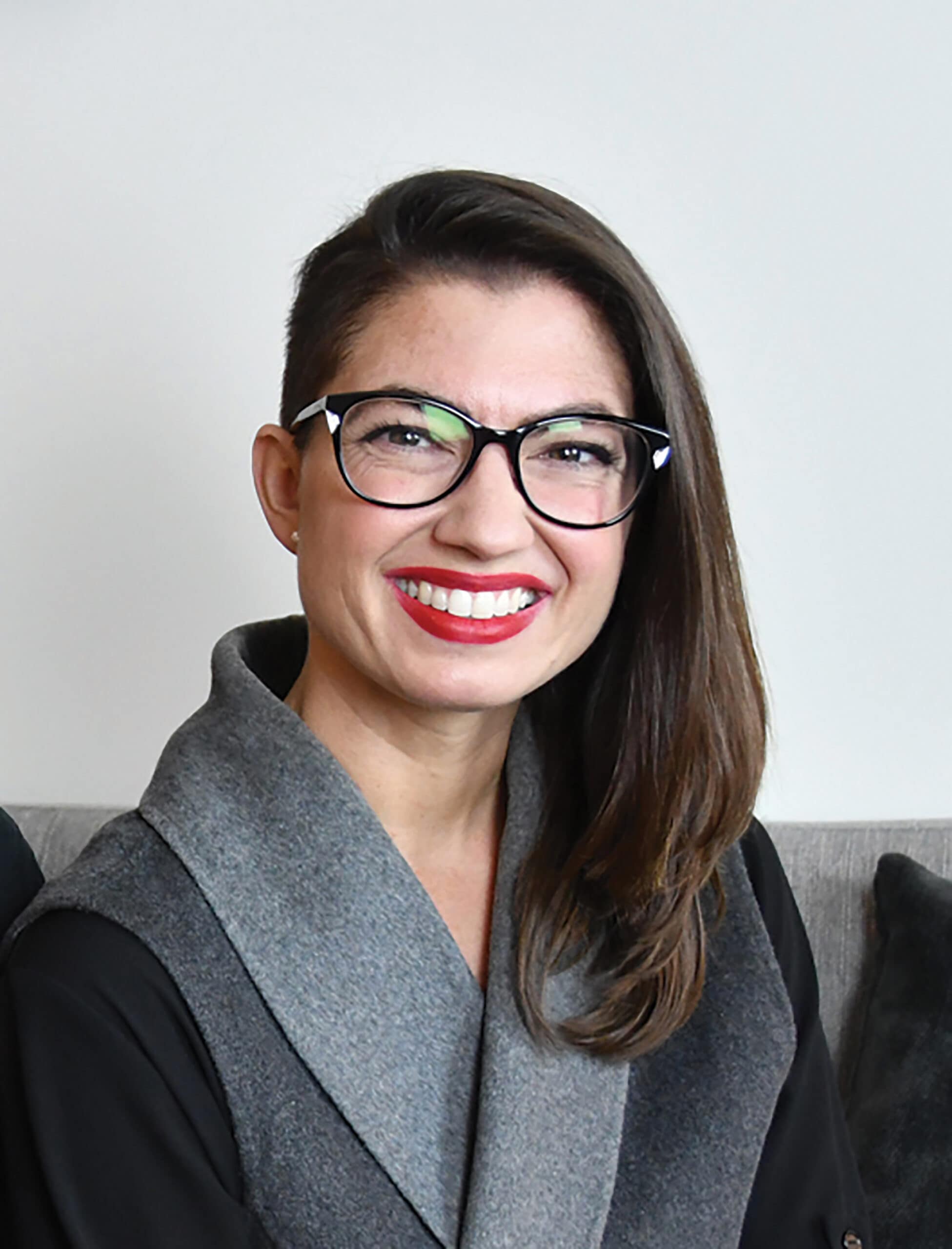Shari Weaver is one of my (s)heroes, and I am in awe of her every day.
As the director of the coordinated entry system at Harbor Interfaith Services, her superpower is meeting people where they are in their rawest moments and using that to herald positive change.
Let’s dive into my candid and heartfelt conversation with Shari, an innovative and tenacious fighter for our unhoused neighbors.
What did you want to be when you grew up?
I can’t say there was any one thing in particular, but I have always been very competitive. I roller skated competitively as a child for 14 years. In fact, my parents met at a roller rink in Long Beach. My sister and I both won the single women’s national competition in different years. In high school, that competitiveness took me to the pool, and I became the first woman to compete on the boys water polo team — and even competed in synchronized swimming. I love the water, and now, as an adult, I could spend all my time in the ocean. It’s how I decompress.
Tell me a little about how your career started.

Shari Weaver. (photo: Tammy Khan)
After high school, I immediately started working for L.A. County, and just as I was turning 21, I joined the Sheriff’s Academy and worked for L.A. County as a deputy sheriff for about three years. After I got hurt on the job, I had to reinvent my career.
Fast-forward some years, and after grappling with some of my own life curveballs, I was fortunate enough to be offered a six-month temporary position with Harbor Interfaith that turned into a 22-year-long career.
Describe a day in your life.
What’s a typical day? Those don’t exist. I generally get in the office about 6:30 a.m. and have to be prepared for whatever is thrown at me. The day could start out meeting with funders, move on to meeting internally with staff, looking at policies, and strategizing how to get resources for the folks we’re currently working with. If I’ve gone “missing” from the office, that probably means I’m out in the streets doing outreach because that will always be my passion. That’s where the real stuff happens.
To do this work, you need three things in abundance — patience, empathy, and tenacity.
What drew you to the work?
From an early age, I knew whatever I did would involve helping people. It’s how I’m wired. Those closest to me know that I’ve been there, living on the streets, struggling in recovery. So, yes, you find yourself in a situation, experiencing the unimaginable yourself. But then you also find a way out. And it just reaffirms what you already know — you have to help, you have to make it better, one person at a time. Honestly, that’s what keeps me going: looking at whose life I made better today because I could help them. The bigger piece can feel overwhelming.
What is a misconception folks have about poverty?
That it only impacts a certain group of people. Poverty doesn’t discriminate.
In your experience, what are the biggest roadblocks in our system?
The system is overweight. It’s large and unwieldy and can’t easily maneuver — this makes it so hard to serve humans where they are.
There are the people who go out and do high-touch work, engage with the folks on the street, and excel at being an advocate or a caseworker — this is their strength. But then we add processes and procedures to their plate that hinder the actual work getting done. We’ve become our own worst enemy. This is one of the main reasons our people [case workers] burn out. On top of that, the workforce is skeletal, and we can’t find qualified folks.
What is something that we all can do to help?
Be solutions-driven. If you can’t be part of the solution, get out of our way so we can do the work. I’ve been working with broken tools most of my career, and I still get the work done.
___________________________
I could write ten articles from this interview — and I might. From Shari’s life experience to her hundreds of stories that articulate how much this work is truly seeing — and walking with — one person at a time. Shari emphasized how those experiencing the worst imaginable situation don’t also need your judgment.
A waitress Shari knew happened to also be homeless. She was trying to get her life sorted — she had a job and was waiting on housing. Someone found out she was living on the streets, judged her for her circumstances, and she was eventually fired.
We can’t have it both ways. We can’t tell those experiencing homelessness that they should get a job and get their life together, then not extend them the grace and patience to do precisely that.
Shari will be retiring soon. Luckily, I know many advocates and workers who, like me, have had the chance to do eye-to-eye street outreach, problem-solve on a Sunday, or break some rules to save some lives with Shari Weaver. spt
Interview has been edited for length and clarity.







Comments